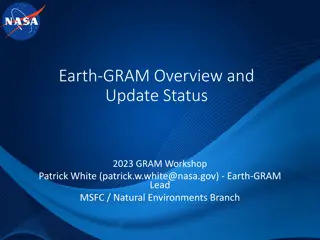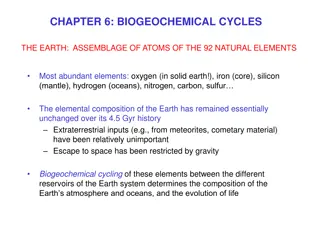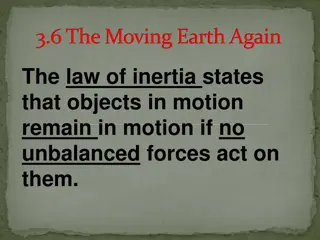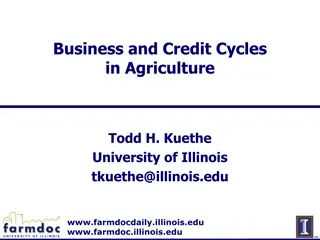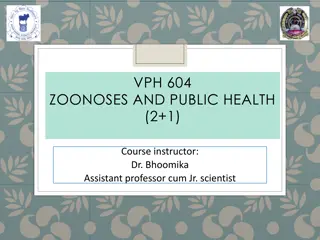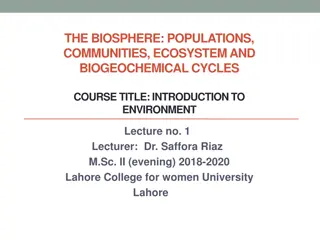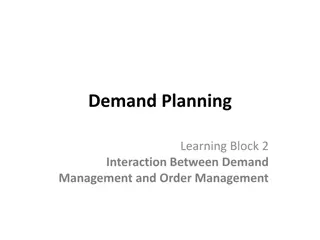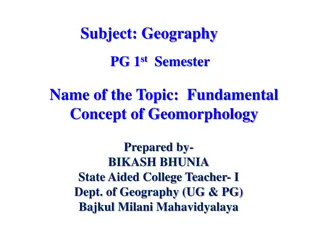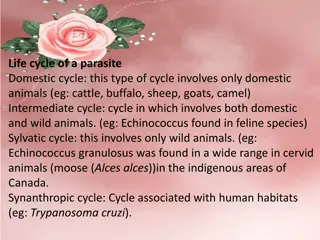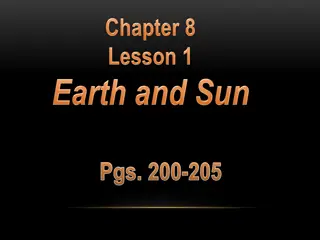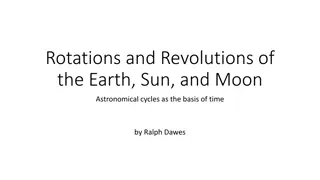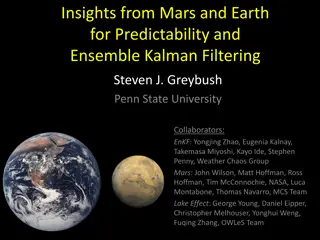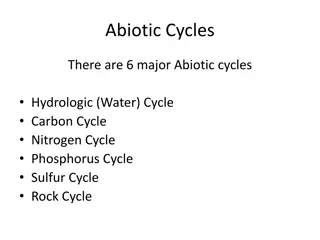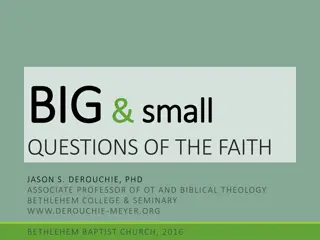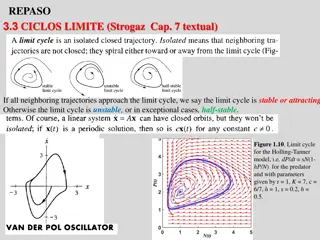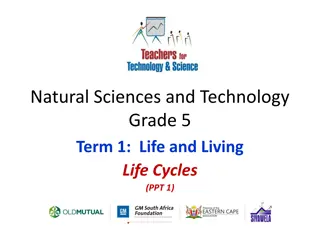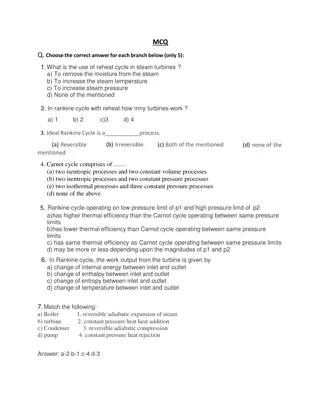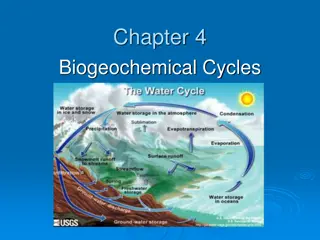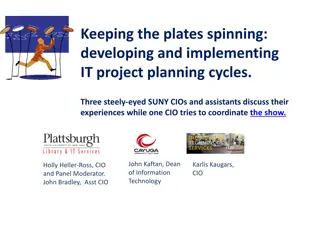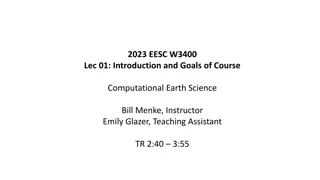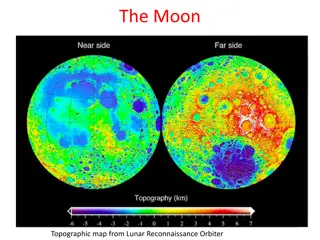SINGLE DISCONNECTING LINK EARTH BAR
Nexus Metal & Alloys is one of the leading manufacturers, exporters, and suppliers of world-class Copper Single Disconnecting Link Earth Bar, Six Way Earth Bar with Single Disconnecting Link, Copper Single Disconnecting Earth Bar at very cheap rate from Mumbai, Maharashtra, India.
4 views • 4 slides
SOLID COPPER EARTH ROD
Nexus Metal & Alloys is a leading manufacturer, exporter and supplier of Solid Copper Earth Rod, Solid Copper Bonded Rod, Solid Copper Earth Rod Lightning Protection Accessories, Pure Copper Bonded Rod, Electrolytic Copper Earth Rod, Solid copper rods, Solid Copper Earth Bars, Solid copper ground el
4 views • 3 slides
Science Week at a Glance: Water in Earth's Processes
This week in Science class, students will focus on the significant role of water in Earth's processes, specifically exploring where water is located on Earth's surface and understanding the various stages of the water cycle. Each day will involve activities, discussions, and investigations related t
7 views • 13 slides
Understanding Earth's Interior through Seismic Waves: Part 1
Seismic waves provide crucial evidence about Earth's composition and structure. By analyzing the behavior of primary, secondary, and surface waves, scientists can determine the different layers and materials within the Earth. Primary waves travel through both solid and liquid parts, while secondary
10 views • 10 slides
Science Week at a Glance: Water in Earth's Processes
Explore a week focused on water in Earth's processes, covering topics such as the water cycle and the role of the sun's energy. Activities include investigations, understanding the significance of water in Earth's processes, and locating water on Earth's surface. Engage in creating water cycle puzzl
7 views • 15 slides
Understanding the Carbon Cycle: Reservoirs, Dynamics, and Importance
Earth's carbon cycle plays a crucial role in sustaining life, with carbon moving through various reservoirs and processes. This cycle involves short-term terrestrial and marine cycles, as well as long-term cycles influenced by volcanic activity and rock weathering. Understanding carbon reservoir dyn
6 views • 45 slides
The History of the Earth
The Earth, 4.5 billion years old, emerged from a nebula in the Milky Way Galaxy. Gravity led to the condensation of a rotating cloud into the Sun and planets. Over time, lumps collided, forming gas giants, rocky planets, and asteroids. The outer planets attracted hydrogen and helium, while the inner
2 views • 45 slides
Standard Earth Bar - Nexus Copper Pvt. Ltd
Nexus Metal & Alloys is one of the leading manufacturers, exporters, and suppliers of world-class Standard Earth Bar, Surge Protection Earthing Links, Lightning Protection Earth Bars, Copper Cladded Mats, Copper Earth Bars, and Copper Earthing Bars at very cheap rates from Mumbai, Maharashtra, India
3 views • 4 slides
Earth-GRAM Overview and Updates 2023
Earth-GRAM is a global reference atmospheric model providing monthly mean and standard deviation data for various atmospheric variables. It is used in engineering for dispersion simulations but is not a forecasting model. Updates to Earth-GRAM include the Modern Era Retrospective Analysis, a global
0 views • 19 slides
Insights into Biogeochemical Cycles and Evolutionary History of Earth
The Earth's elemental composition has remained constant over its 4.5 billion-year history, with biogeochemical cycles playing a vital role in shaping the atmosphere and oceans. The evolution of oxygen, ozone, and life on Earth is intricately linked to these cycles. Contrasting Earth and Venus, it's
0 views • 15 slides
Understanding Inertia and Motion in the Moving Earth
Inertia and motion in a moving Earth debunk the argument against Earth's movement using examples of birds catching worms on trees and flipping coins in moving vehicles. Objects on Earth move with Earth's motion, showcasing the principle of inertia in action.
2 views • 7 slides
Contrasting E-Government and General Project Life Cycles
E-Government project life cycles differ significantly from general project life cycles, with the former's focus on management and stakeholder needs, leading to challenges in requirements gathering and adapting to changing priorities. The Waterfall model used in general projects may result in project
0 views • 9 slides
Understanding Trade Cycles: Economic Fluctuations and Phases
Trade cycles, also known as business cycles, are fluctuations in economic activities, affecting employment, output, income, prices, and profits. These cycles consist of phases including depression, recovery, prosperity, and recession. During booms, economic activities peak, while recessions see a sl
7 views • 7 slides
Exploring Pseudo-Goodwin Cycles in a Minsky Model
This paper delves into the dynamics of Pseudo-Goodwin cycles within a Minsky model, examining the counter-clockwise movement of output and wage share. It distinguishes between true Goodwin cycles and pseudo variants, highlighting the role of income distribution, debt, and demand in shaping economic
0 views • 27 slides
Understanding Business and Credit Cycles in Agriculture
This research delves into the relationship between business and credit cycles in agriculture, focusing on the impact on operating margins, farmland prices, and lending practices. It explores the linkage between asset values and credit, highlighting the significance of farmland as collateral in farm
0 views • 23 slides
Understanding Zoonoses in Public Health: Classification and Transmission Cycles
Zoonoses, diseases transmitted from animals to humans, are classified based on etiological agents, transmission cycles, and reservoir hosts. The classification includes bacterial, viral, rickettsial, chlamydial, mycotic, and parasitic zoonoses. Transmission cycles are categorized as direct, cyclozoo
0 views • 19 slides
Exploring the World of E-Cycles: Innovation, History, and Legal Aspects
Delve into the realm of E-Cycles through an informative journey covering the North East Electric Conclave, advancements in e-mobility, and the legal framework for E-Cycles in India. Uncover the fascinating history of E-Cycles, from their inception in the 1890s to their modern-day classifications and
3 views • 23 slides
Understanding the Earth's Environmental Systems and Cycles
Explore the interconnected systems of the Earth's biosphere, lithosphere, hydrosphere, and atmosphere, along with biogeochemical cycles like the hydrological cycle. Learn how these systems interact to sustain life and maintain Earth's dynamic environment over billions of years.
1 views • 28 slides
Demand Planning and Order Management: Enhancing Efficiency
Explore the intricate relationship between demand planning and order management, crucial for optimizing customer order fulfillment cycles. Learn key principles, tools, and techniques to enhance communication and manage demand effectively, along with contemporary approaches and e-commerce fulfillment
1 views • 28 slides
Plant Reproduction and Life Cycles in Biology II for Non-Majors
Explore the complex processes of plant reproduction, life cycles, and the alternation of generations in biology. From the fusion of male and female gametes to the development of sporophytes and gametophytes, delve into the stages and structures involved in the reproduction of gymnosperms and angiosp
0 views • 25 slides
Fundamental Concepts of Geomorphology: Exploring Earth Forms and Evolution
Geomorphology, derived from Greek roots for earth and study, focuses on the origin and evolution of Earth's surface features. Geomorphologists study landforms above sea level and the interface between solid Earth, Hydrosphere, atmosphere, and Lithosphere. The fundamental concepts of geomorphology in
0 views • 12 slides
Understanding the Complexities of Parasite Life Cycles and Host Interactions
Parasites exhibit diverse life cycles and behaviors, with cycles ranging from domestic to sylvatic environments. Factors influencing parasite diseases include host specificity, immunity, and host-parasite interactions. Parasitism can alter host behavior, impacting ecological dynamics. Immunology pla
0 views • 9 slides
Understanding Day, Night, and Seasons on Earth
Earth's rotation on its axis causes day and night, with the Sun appearing to rise in the east and set in the west. The movement of stars, Moon, and planets across the sky each night is due to Earth's rotation as shadows change in length throughout the day. Seasons result from Earth's revolution arou
0 views • 20 slides
The Earth, Sun, and Moon: Rotations and Revolutions Explained
Discover the complexities of time measurement based on astronomical cycles involving the Earth, Sun, and Moon. Learn how the varying lengths of sidereal and solar days relate to the Earth's rotational speed, its elliptical path around the Sun, and the concept of leap years to adjust our calendar sys
0 views • 23 slides
Understanding Processor Cycles and Machine Cycles in 8085 Microprocessor
Processor cycles in microprocessors like 8085 involve executing instructions through machine cycles that are essential operations performed by the processor. In the 8085 microprocessor, there are seven basic machine cycles, each serving a specific purpose such as fetching opcodes, reading from memor
0 views • 17 slides
Understanding Earth's Seasons and Yearly Cycles
Seasons on Earth are a result of its tilt and orbit around the Sun, leading to changes in temperature and daylight throughout the year. Learn about the characteristics of each season, how Earth's tilt affects sunlight distribution, and the annual events that signal seasonal shifts. Explore the signi
0 views • 8 slides
Insights from Mars and Earth for Predictability with Ensemble Kalman Filtering
A collaborative effort between Penn State University and various teams explores the predictability of Martian and Earth weather phenomena using ensemble Kalman filtering. A comparison of key characteristics between Earth and Mars is provided, shedding light on their variable atmospheres and climates
0 views • 31 slides
Understanding Abiotic Cycles in Ecosystems: Hydrologic, Carbon, Nitrogen, and More
Abiotic cycles play a crucial role in regulating ecosystems. The hydrologic cycle involves processes like evaporation, condensation, precipitation, and transpiration. The carbon cycle relies on photosynthesis, respiration, and human activities like deforestation and burning fossil fuels. The nitroge
0 views • 20 slides
Understanding Young Earth Creationism: Biblical Perspectives on the Age of the Earth
Exploring the viewpoint of Young Earth Creationism (YEC) based on biblical arguments, this content delves into the belief that God created the earth in six 24-hour periods, making it exceptionally young by conventional scientific standards. The discussion focuses on the biblical passages and theolog
0 views • 20 slides
8th International Supercritical CO2 Power Cycles Conference in San Antonio, TX, USA
The 8th International Supercritical CO2 Power Cycles Conference is scheduled from February 27-29, 2024, in San Antonio, Texas, USA. This conference aims to bring together experts in the field to discuss the latest advancements and research in supercritical CO2 power cycles. The event will feature pr
0 views • 9 slides
SMC Alliance Annual Meeting: Defeating Malaria Together - Overview and Planning for 2022
The SMC Alliance Annual Meeting discussed the methodology for data collection and analysis, past SMC campaign data, coverage and trends in average number of children covered since 2014. It highlighted countries performing 5 cycles, those with incomplete 4th cycles, and those focusing on 3 cycles. Th
0 views • 8 slides
Understanding Limit Cycles and Bifurcations in Dynamical Systems
Explore the stability of limit cycles and bifurcations in dynamical systems through examples like the Holling-Tanner model. Discover the significance of stable limit cycles and the role of Liapunov functions in forbidding closed orbits. Delve into the intriguing behavior of trajectories in bottlenec
0 views • 16 slides
Understanding Life Cycles: Plants and Animals
Explore the fascinating world of life cycles in plants and animals through engaging visuals and descriptions. From the process of germination to the different stages of growth and development, discover how living organisms move through their life cycles. Topics include plant pollination, seed disper
0 views • 14 slides
Engineering Thermodynamics Multiple Choice Questions
This content covers various topics related to engineering thermodynamics through multiple-choice questions. It includes concepts such as the use of reheat cycles in steam turbines, ideal Rankine cycles, Carnot cycles, and the efficiency of different cycles. Questions on the Rankine cycle, working fl
0 views • 4 slides
Animal Life Cycles Review and Group Challenge
Explore the world of animal life cycles through a trivia game and group challenge. Test your knowledge on organisms, embryos, vertebrates, invertebrates, and more. Dive into rounds of tricky taboo questions and identify adult animals from their offspring. Discover common traits among mammals, unders
0 views • 8 slides
Understanding Biogeochemical Cycles and Their Impact on Earth's Ecosystems
Biogeochemical cycles involve the cycling of essential nutrients like water, carbon, oxygen, nitrogen, phosphorus, and sulfur through abiotic components like water, air, soil, and rock to biotic components like plants, animals, fungi, and bacteria. Humans play a significant role in these cycles, imp
0 views • 24 slides
Thermodynamic Calculators for Comprehensive Analysis of Systems, Processes, and Cycles
Explore a series of simplification in the TESTcalc Tree, leading to the accurate analysis tool system states and basic tools for uniform and non-uniform systems. Access TESTapps for a variety of thermodynamic calculators catering to specific, generic, mixing, non-mixing, and combustion systems, alon
0 views • 12 slides
Keeping the Plates Spinning: Insights from SUNY CIOs on IT Project Planning Cycles
Three SUNY CIOs and their assistants share experiences on IT project planning cycles, emphasizing the crucial role of planning for success. Lack of planning can lead to chaos and inefficiencies. The discussion highlights the need for strategic IT enablement in the academic enterprise and the importa
0 views • 35 slides
Computational Earth Science Course Overview
Explore the world of Computational Earth Science with Bill Menke as the instructor and Emily Glazer as the teaching assistant. The course aims to help you become proficient in applying Python-based computational methods to understand dynamic Earth Science phenomena. Through modeling, you will gain i
0 views • 34 slides
The Moon: Topographic Features and Formation
The moon, with a radius 0.27 of Earth, orbits the Earth every 27.3 days and is tidally locked with one face always pointing towards Earth. It has a composition similar to Earth's rocks and likely formed from a giant impact. The moon's surface features craters and dark patches called maria, while the
0 views • 13 slides








